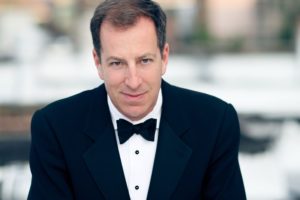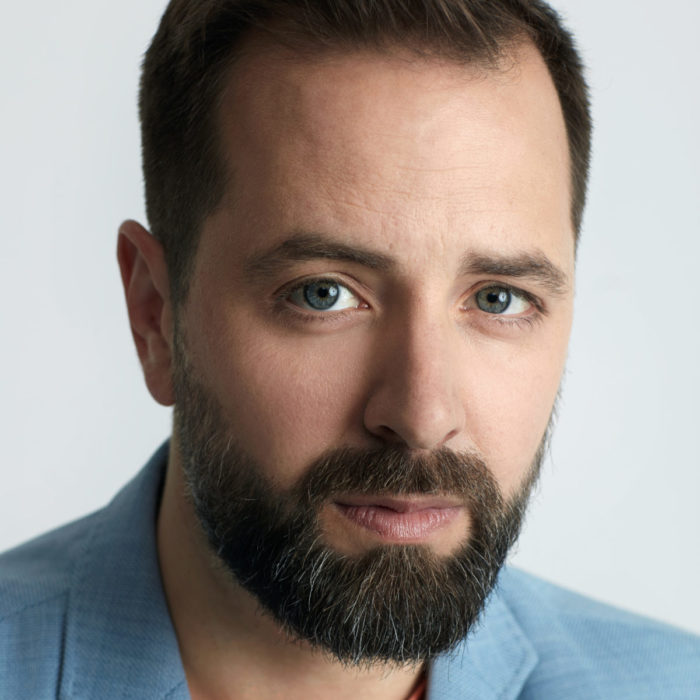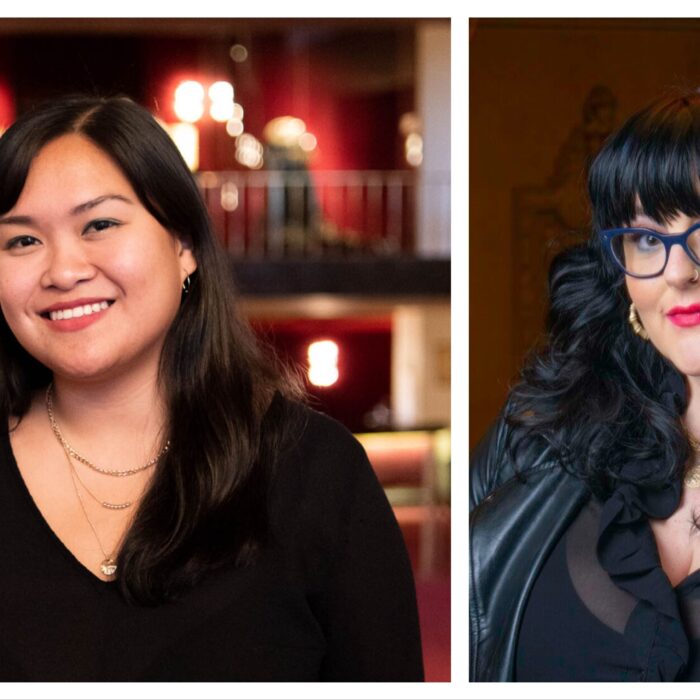
Q & A: MasterVoices Artistic Director Ted Sperling On ‘Night Songs & Love Waltzes’
By Nicole KuchtaOn March 1, 2019, Mastervoice is set to present a program entitled “Night Songs & Love Waltzes” featuring 19th-Century Romantic German Song as well as a world premiere commission. The concert will also feature a stellar cast of international singers and a piano duo.
In preparation for the concert, OperaWire had a chance to speak with Artistic Director Ted Sperling about the concert and the process of organizing it.
OperaWire: MasterVoices will present “Night Songs & Love Waltzes” at Alice Tully Hall. How did you go about putting together the program for this concert, which includes 19th-Century Romantic German songs, Ricky Ian Gordon’s “Life is Love” set to poems by Langston Hughes, and the New York premiere of your “Night Waltzes”?
Ted Sperling: I think the influence, for me, really started with wanting to do the Liebeslieder Waltzes with my group. It’s a piece that I’ve loved since I was a teenager, and I got to sing it then. I wanted to figure out a way to [do] it with our group as the centerpiece of a larger program. Then it came to me. The experience in which I rehearsed the Liebeslieder when I was a kid was around a piano in someone’s living room, and it had a very collegial comradery about it. I thought it would be great if we could celebrate the art of making music at home, which is of course how many people encountered music in that period. Not many people had access to concerts, no one had recordings. If you really wanted to learn the music and enjoy it, you had to perform it. Also, the idea of singing in harmony with your friends was very appealing to me, especially in this time we live in.
We tend to listen to music with earbuds, so isolated from each other. That led to my looking for other part-songs, [pieces] that you could sing in harmony with your friends around the piano, or a cappella. We did a lot of research to find pieces that would meld with the Brahms. And because at MasterVoices we like our audiences to really follow the text, we do a lot in English. So, I wanted to have some pieces that were in English on the program. That’s why we asked Ricky to adapt a set of his songs and write us something new – we have a firm belief in commissioning new work. Ricky is one of our favorite composers; he writes so beautifully for the voice, both for chorus and for soloists. So we chose songs from his repertoire that celebrated the joy of falling in love, the questioning of ‘Why are we here? Is it okay to indulge in some of these more personal feelings, or should [we] be looking out for the larger picture?’ And the Sondheim actually came about as a suggestion from somebody on our staff, I think inspired by the fact that there are characters in “A Little Night Music” called the Liebeslieders – a tribute to Brahms’ title of the Liebeslieder Waltzes. So I put together a set of songs that are sung by those characters. That’s a connection there between the Brahms and the Sondheim.
OW: What were the challenges of bringing together the works of 19th-Century German composers and those of contemporary composers Ricky Ian Gordon and Stephen Sondheim?
TS: I think the biggest question was actually how to order the program – I’m still tinkering with that. Choosing those two composers, their language is classical in many ways at its core, so it wasn’t that difficult to imagine them on the same program. The Sondheim that we chose is from a show that’s very much inspired by this period of music. All the songs from that show are in some version of triple time, waltz tempos and barcarolles… I actually found it to be a pretty easy fit.
OW: Gordon’s song cycles will showcase the poetry of Langston Hughes. What is the significance of Hughes’ poetry within this particular program?
TS: All the lied, all the songs are based on existing poetry. The German composers looked to their inspirations, to other poets who inspired them, and for Ricky, Langston Hughes is a big inspiration. He’s set many, many of his poems [to music]. It made sense to us that Ricky’s songs should be inspired by a poet from just a few decades ago, the way the German composers were inspired by poets of their time.
OW: In what ways have you been influenced by Sondheim?
TS: In many ways! I grew up with the name. “West Side Story” in particular. I didn’t get to know his own shows as a composer until I was in college. By a stroke of luck, Sondheim was scheduled to come to my college to give a talk – a very casual talk, in someone’s living room, and I managed to wrangle an invitation. I was sitting almost next to him at this talk. We had decided to produce “Side by Side by Sondheim” two months later at school, and so I was full of questions for him about that show. Everybody else was so nervous just to be in the same room with him that I actually had a chance to ask my questions. I had something very specific to ask. He was very kind – he gave us permission to make some changes, [and] he gave us some new material that he’d written. That started a long correspondence with him while I was in school. We did the first amateur production of “Merrily We Roll Along” while I was there, and we had to do that with his permission and guidance. I started working for him almost immediately after leaving college. I was a rehearsal pianist and musician in the pit for “Sunday in the Park with George.” I continued to do projects of his over the years. We stayed in touch, and so when I had to ask him permission to put together this medley, he was very gracious about it. And, I wanted to include one song that’s quite rare, a song that was cut from “A Little Night Music” that’s almost never performed. I had to get the music from him.
OW: How do you view the overall relationship between opera and musical theatre? Do you think opera can benefit from borrowing certain elements of musical theatre, and vice versa?
TS: I think they have at their heart the same impulse, which is to entertain and move us through a combination of text and music. I think if you can find the best of both worlds, which is what we try to do with our group and make sure that the storytelling is first and foremost what we’re aiming to accomplish, then it’s a good way to find your pathway through either genre. In the musical theatre work we do, we try to cast really beautiful singers so we can make the music as gorgeous as possible, and in the opera work, we do we try to find opera singers who really care a lot about the text and make the words come alive.
OW: What went into casting the vocal soloists for this concert?
TS: For this one, because it’s mainly romantic music [that] talks a lot about love, what it’s like to be next to someone in the dark of night, I wanted the quartet to feel romantic. And so I was just looking for four singers who felt that they would complement each other very well in this romantic setting.
OW: What is your current vision for MasterVoices? What do you most hope to achieve during your time as Artistic Director?
TS: I’ve been trying to push the group more and more toward staying ambitious about productions and presentation of work so that we’re engaging people in all their senses. We’re getting conscious [that the experience ought to be] more than just come and sit back and let beautiful music wash over you. We’re trying to engage our audience in a more active way, and provide things for them to look at, listen to, and think about. We continue to try to explore many different genres and bring works to life that wouldn’t otherwise be performed in New York. And if we do more standard repertoire, we try to do it in a way that no one else is doing it.


